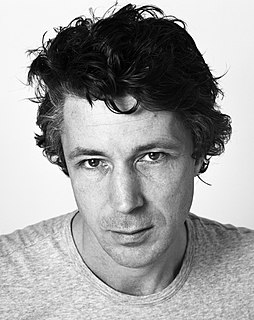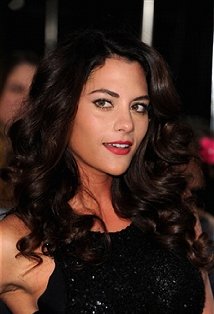A Quote by Anton Corbijn
Like stories, people have individual lives, and are all caught up in this murky thing. All of them have the best intentions. In that sense, you could just as easily tell the same story from another character's perspective. Maybe that's a good idea for a TV series.
Related Quotes
We read novels because we need stories; we crave them; we can’t live without telling them and hearing them. Stories are how we make sense of our lives and of the world. When we’re distressed and go to therapy, our therapist’s job is to help us tell our story. Life doesn’t come with plots; it’s messy and chaotic; life is one damn, inexplicable thing after another. And we can’t have that. We insist on meaning. And so we tell stories so that our lives make sense.
We can tell people abstract rules of thumb which we have derived from prior experiences, but it is very difficult for other people to learn from these. We have difficulty remembering such abstractions, but we can more easily remember a good story. Stories give life to past experience. Stories make the events in memory memorable to others and to ourselves. This is one of the reasons why people like to tell stories.
There's this sense of being strange, which is at the heart of every creative person. Every writer, every actor, every director knows who Ripley is. We've made careers and lives out of pretending, making things up, inhabiting other people's stories and lives. That's what I do every day. . . . The story is so audacious and subversive: a central character who behaves badly and isn't apparently caught. That intrigued me no end.
I usually make up stories for my kids.I like to tell them stories and make up any kind of crazy to involve them in characters. The kind of fairytales I don't like are the ones with happy endings, where there's just good and evil and things are perfect. I think when there's a good story for children it has a moral tale, so that's what I try to teach my kids.
One of the things I used to dream of is that if I could just be funny like Red Skelton, if I could be a comedian like Red Skelton - that's what I watched on TV - then maybe I would have friends. I just remember that if I told stories to my friends, they listened. And in my family, with nine people talking at the same time, it's really hard to get people to listen to you. We were all craving attention.
When you write a business fable, people get caught up in the story and don't get judgmental about what you're teaching them. If you're teaching a bunch of concepts, people get skeptical and say, 'Where'd you get that research?' But if you tell them a story, they get caught up in it while they learn.
I don't know who made the first Aquaman joke. I'm sure it was comics readers; maybe we all did. But it's the idea that the perpetuated story of Aquaman is that he only has powers in water, and he talks to fish. I think it's the idea of him in the middle of a city just doesn't make a lot of sense to people. It's just the character itself.
What's neat about TV is you get really rich, an opportunity to tell really rich stories over the course of 20 hours. Film is cool because it's an hour and a half to two hours. You go on an adventure and by the end it's all cleaned up. Maybe in a franchise you have three chapters of a great story but in TV you can really get deep. You have more time to tell stories so I would definitely not rule out doing television in the future because I think it's a great medium for telling stories.
I disagree that Blood Will Out is a memoir in the conventional sense. It's the story of a relationship, primarily, not an individual. The "me" in the book is a specialized version of me, the person who Clark manipulated and fooled. I could cover the same years of my life from an entirely different perspective in another book, by concentrating on my experience as a husband, say. But I was selective. I focused on my duping.





































